Bzrk Read online
Beams of brilliant green light.
A spray of mist.
And suddenly a different view. A close-up in a flash of grainy light: a second creature, like the first, jerky movements, legs that ended in lobster claws, thrashing.
Then, “Oh, God!” Plath cried. “I saw its face.”
The author wishes to thank two amazing bands, The Methadones and Shot Baker, for permission to reprint some of their lyrics.
The digital experience that accompanies this book was created by The Shadow Gang in conjunction with the author (www.theshadowgang.com).
First published by Egmont USA, 2012
443 Park Avenue South, Suite 806
New York, NY 10016
Copyright © The Shadow Gang, 2012
All rights reserved
1 3 5 7 9 8 6 4 2
www.egmontusa.com
www.gobzrk.com
Library of Congress Cataloging-in-Publication Data
Grant, Michael, 1954–
BZRK / Michael Grant.
p. cm.
Summary: In the near future, the conjoined Armstrong twins, under the guise of the Armstrong Fancy Gifts Corporation, plot to create their own version of utopia using nanobots, while a guerilla group known as BZRK develops a DNA-based biot that can stop bots, but at risk of the host’s brain.
ISBN 978-1-60684-312-3 (hardcover) — ISBN 978-1-60684-313-0 (ebook)
[1. Utopias—Fiction. 2. Nanotechnology—Fiction. 3. Conjoined twins—Fiction. 4. Twins—Fiction. 5. Science fiction.] I. Title.
PZ7.G7671Bzr 2012
[Fic]—dc23
2011027666
Printed in the United States of America
All rights reserved. No part of this publication may be reproduced, stored in a retrieval system, or transmitted, in any form or by any means, electronic, mechanical, photocopying, or otherwise, without the prior permission of the publisher and copyright owner.
For Katherine. Jake. and Julia
Oh, that way madness lies;
let me shun that.
King Lear
CONTENTS
ONE
TWO
THREE
FOUR
FIVE
SIX
SEVEN
EIGHT
NINE
TEN
ELEVEN
TWELVE
THIRTEEN
FOURTEEN
FIFTEEN
SIXTEEN
SEVENTEEN
EIGHTEEN
NINETEEN
TWENTY
TWENTY-ONE
TWENTY-TWO
TWENTY-THREE
TWENTY-FOUR
TWENTY-FIVE
TWENTY-SIX
TWENTY-SEVEN
TWENTY-EIGHT
TWENTY-NINE
THIRTY
BZRK—A CHEAT SHEET
ABOUT THE AUTHOR
ONE
A girl sat just three chairs down from Noah talking to her hand. To the back of her hand, actually, as she spread her fingers wide. Her fingertips were painted alternately red and gold, but not with fingernail polish, and not strictly on the fingernails. Rather, it looked as if she had used a can of spray paint.
She explained to the back of her hand that she was “Perfectly all right. Perfectly all right.”
Noah thought she might have been pretty, but it was hard to really assess her face or body when his glance was drawn so irresistibly to the rope burn around her neck.
She started screaming when the orderlies came for her. They had to lift her up bodily, one on each rigid arm. Her mother, or perhaps older sister, stood with her hand over her mouth, wept and echoed the girl’s own speech.
“It’ll be all right,” said the sane one.
“I’m perfectly all right!” cried the crazy one.
The girl kicked her chair across the floor and shot Noah a savage look from eyes edged red.
Noah Cotton. Sixteen years old. He had brown hair that defaulted to bed head without any effort on his part. His lips were full and downturned just a little, as if prepared for sadness. The nose was strong and sharp, a damned-near-perfect nose. But of course it was those blue eyes that drew you in. Where had he gotten eyes that blue? They looked unnatural. Like someone wearing tinted contact lenses. And Noah would turn those bright, unnatural blue eyes on you, and you wouldn’t know whether you were looking into profound depths or maybe just into a very crazy place.
Well, if the answer was, “a very crazy place,” then he would fit in perfectly with his location, which was the waiting room in the central hall of The Brick.
This place weighed down on him. Maybe it was the history. In the eighteenth century it had been called the Lord Japheth LeMay Asylum for the Incurably Mad. By the mid-nineteenth century that had been softened a bit to become the East London Asylum for the Insane.
Today it was officially called the East London Hospital for the Treatment of Serious Mental Illness.
But no one called it that, at least not outside the facility itself. Out in the world it was called The Brick.
It was a redbrick architectural monstrosity that had grown—metastasized, maybe—over the course of more than two hundred years. It wasn’t all brick. Some of the towers and wings were stone. Some outbuildings were flaking, painted plaster over ancient half-timbered walls. But the massive hall, with its fraternal twin towers, the Bishop and the Rook—one tall and pointed, the other squat and intimidating—were all in soot-encrusted red brick.
Noah was doing his best not to feel the echoes of the mad girl’s cries, but the waiting room was about as schizophrenic as many of the patients: ancient oil paintings, a vaguely off-kilter black-and-white tile floor, yellow walls that were probably someone’s idea of cheerful, and furniture from a rummage sale. Then, to top it all off, there was the chandelier, which had to have been plundered from some gaudy palace during a long-ago colonial war. It cast a light that was excellent at creating shadows, so that even the space under the chairs looked as if it might be the dark lair of tiny monsters.
Noah was here to visit his brother, Alex. His much older brother, Alex. Age twenty-five, ex-army veteran of Afghanistan, Royal Highland Fusiliers. (Motto: Nemo Me Impugn Lacessit—No One Assails Me with Impunity. Or the alternative version—Do Not Fuck with Us or We Will Hurt You.) Shoulders you could break a cinder block on, disciplined, up every morning to run ten kilometers in whatever weather London had on offer.
Alex Cotton, who had earned the Conspicuous Gallantry Cross for basically having balls so big he had taken out three hajis in a machine-gun nest while literally carrying a wounded comrade on his back.
And now …
Noah’s name was called. An attendant, a swaggering thug with fat legs, a Taser in one pocket and a leather-covered sap sticking out of the other, led the way. Past office doorways. Through a reinforced glass-and-steel security doorway.
Through a second security door.
Past the control center where bored guards watched flickering screens and discussed sports with their feet up.
Through a third door. This one had to be buzzed open by an attendant on the other side.
And here the screams and wails and sudden shrill, rising cries and gut-wrenching sobs began. The sounds leaked through steel doors of individual rooms: cells, in reality.
Noah didn’t want to feel those screams inside himself, but he wasn’t armored, he wasn’t impervious. Each wild trill of mad laughter made him flinch as if he was being whipped.
A nurse and two scruffy attendants were making their way from door to door. One of the attendants pushed a squeaky cart loaded with little plastic cups, each designated with a code number and containing no fewer than half a dozen and sometimes a baker’s dozen brightly colored pills.
The pill crew came to a
door, knocked, warned the inmate to stand back, waited, then unlocked and opened the door. One attendant— no, let’s cut the bull, they were guards, turnkeys, screws, but not attendants—went inside with the nurse while the remaining guard stood ready with a Taser.
Noah reached Alex’s cell. Number ninety-one.
“Don’t worry, he’s shackled,” the guard said. “Just don’t try to touch him. He don’t like people touching him.” The guard grinned ruefully and shook his head in a way that suggested Noah knew what he meant.
The door opened on a room five feet wide, eight feet deep. The only furnishing was a steel bunk. Fat steel bolts fixed the cot to the cracked tile floor. There was a radio on a high shelf, too high for a person to reach. The BBC was on, soft, some politician being grilled.
Alex Cotton sat on the edge of the bunk. His wrists were handcuffed to steel rings on either end. The effect was to stretch his arms out and limit his ability to move anything but his head.
The ghost of Alex Cotton turned hollow, vacant eyes on his little brother.
Noah couldn’t speak for a moment. Because what he wanted to say was, “This is the wrong room. That’s not my brother.”
Then a low growl that at first sounded as if it might be coming from the radio. An animal sound. Alex Cotton’s mouth snapped suddenly, like a shark missing the bait.
“Alex,” Noah said. “It’s me. It’s just me, Noah.”
The guttural sound again. Alex’s eyes suddenly focused. Stared at Noah, shook his head as if the vision caused him pain.
Noah made just the slightest move to touch his brother’s strained arm. Alex yanked his whole body as far away as he could, which was no more than a few inches. He strained so hard that the handcuffs drew blood.
Noah backed away, held up his hands reassuringly.
“Told you, don’t try and touch him, he’ll start in screaming about his little spiders and shit,” the guard said.
“Alex, it’s just me. It’s Noah.”
“Nano nano nano nano,” Alex said in a singsong voice, and then giggled. He wiggled his fingertips like he was acting something out.
“Nano? What is that, Alex?” He whispered it, speaking as he would to a frightened child. Gentle.
“Heh heh heh, no. No. No no no nano nano nano. No.”
Noah waited until he was done. He refused to look away. This was his brother. What was left of his brother.
“Alex, no one can figure this out. No one can figure out what happened to you. You know what I mean, to have you end up here.”
Explain your craziness, crazy man. Tell me what happened to my brother.
“Nano, macro, nano, macro,” Alex muttered.
“He says that a lot,” the guard offered. “Mostly nano.”
“Is this from the war?” Noah asked, ignoring the guard. He wanted an explanation. None of the doctors had been very convincing. Everyone said it was probably the war, but Alex had been examined for posttraumatic stress when he came home, and everything had seemed fine with him. He and Noah had taken in some sports, gone on a road trip to the Cornish coast for the beach and for some girl Alex knew. His brother had been a little distracted, but that was all. Distracted.
The guard hadn’t answered.
“I mean, is it memories and all that?” Noah pressed. “Is that what he goes on about? Afghanistan?”
To his surprise, it was Alex who answered.
“Haji?” Alex laughed a crooked-mouth laugh, like half his face was paralyzed. “Not haji. Bug Man,” Alex said. “The Buuug Man. One, two, three. All dead. Poof!”
“That’s pretty good for him,” the guard opined approvingly.
And for a few seconds it almost seemed as if the crazy had cleared away. Like Alex was straining to make his mouth say words. His voice went down into a whisper. He nodded, like he was saying, Pay attention to this; this is important.
This. Is. Important.
Then he said, “Berserk.”
Alex nodded, satisfied with himself, then kept nodding harder and harder, until his whole body was vibrating almost like some kind of seizure. The shackles rattled the bed. The whole cell seemed to vibrate in sympathy.
“Berserk!” Alex said, louder now and louder still until he was shouting it.
“Berserk! Berserk!”
“Jesus,” Noah said, hating himself for reacting, for letting his horror show.
“Once he starts on this, it’s over for the day,” the guard said wearily. He grabbed Noah’s arm, not unkindly. “Goes on for hours with this berserk shite of his.”
“Berserk! Berserk!”
Noah let himself be led from the cell.
“Berserk!”
When he heard the door locked behind him, he felt a wave of sickness and relief. But it didn’t stop the sound of his mad brother’s cries, which followed him down the hallway, drilling holes into Noah’s reeling mind.
“Berserk!”
“BERSERK!”
TWO
Stone McLure wasn’t model handsome. Not one of those, one of those guys who looked pretty. Even though he was just seventeen, Stone wasn’t really for girls. He was for women.
Women would look at him and let their eyes slide over his face and those shoulders, because, you know, women don’t stare the way men do. They just need a glance. And then, having memorized him with a glance, they would regret their marriage, regret their age, regret their sweatpants and faded Abercrombie T-shirts, regret that they were carrying a plastic bag of groceries in one hand and a twenty-four pack of Pampers in the other.
Stone pulled his earbuds out.
“Where are we stopping first?” he asked his father.
“We’ll refuel in San Francisco and pick up a second pilot. Then I have a brief meeting in Hokkaido, and it’s on to Singapore.” He said it without looking up from his work.
Earbuds back in.
Stone had curly dark hair and eyes like polished green marble with golden threads woven through. He had a brow that seemed designed by God to mark him as honest, a strong nose, a complexion that had surely never been marred by so much as a freckle, let alone a pimple—what pimple would dare?
He looked a bit like his father, Grey McLure—and most of the world knew Grey’s face—but Grey had the signs of weariness and wariness that came of being a billionaire of the better sort. A billionaire who had made his money with science and innovation and in all the ways you’d hope a billionaire would make his money.
They were sitting just a couple of feet apart in the back of a Cessna Citation X, Grey facing aft, Stone facing forward. It was a private jet, yes, but no more ostentatious than was absolutely necessary in a private jet. There was no hot flight attendant in a teasing uniform. No flowing Champagne. None of that. Grey’s jet was about business. And his son was learning that business.
Grey was drinking coffee from a mug that said FAIRLY DECENT DAD. See, a mug that said WORLD’S BEST DAD would have violated the Grey family’s style, which was self-deprecating, wry, and utterly devoted.
Grey was tapping away at his pad and sipping and tapping and frowning a bit from time to time.
Stone was reading a book on his own pad, not maybe paying as much attention as he should, because in his ears were the buds and through them came the raw, hoarse voice of Tony Kovacs.
Being here with my surroundings,
Seeing all I’m looking at,
Evolution winking at me,
My face forms a smile.
Earbuds out.
“So this would be a flight measured more in days than in mere hours,” Stone said, and stretched his legs.
“Long flight,” his father acknowledged. “You could have spent the time with your grandmother in Maryland.”
Stone held up mock-surrender hands. “Did I sound like I was complaining?”
“Your grandmother loves you.”
“My grandmother loves painting ceramic figurines of First Ladies.”
“Historically accurate figurines,” Grey said, and
grinned. “You could have helped her decorate Abigail Fillmore’s bonnet.”

 Fear
Fear Plague
Plague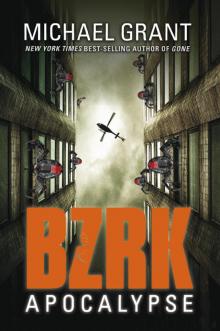 BZRK: Apocalypse
BZRK: Apocalypse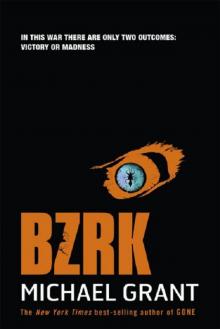 Bzrk
Bzrk Love Sucks and Then You Die
Love Sucks and Then You Die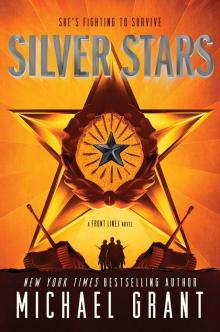 Silver Stars
Silver Stars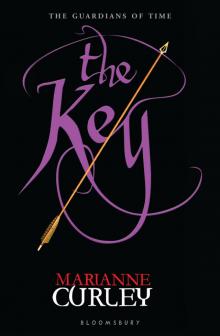 The Key
The Key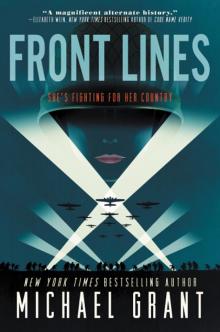 Front Lines
Front Lines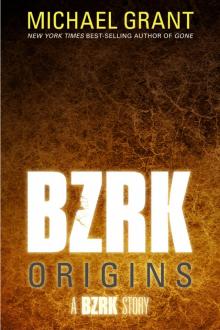 BZRK Origins
BZRK Origins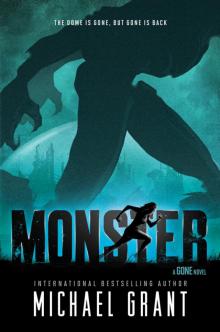 Monster
Monster Gone
Gone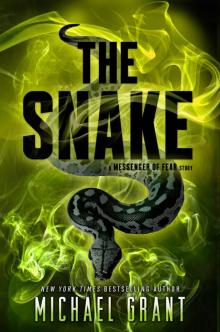 The Snake
The Snake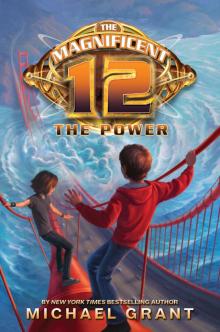 The Power
The Power Hunger
Hunger Lies
Lies A Sudden Death in Cyprus
A Sudden Death in Cyprus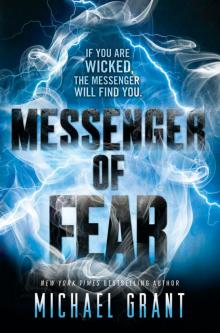 Messenger of Fear
Messenger of Fear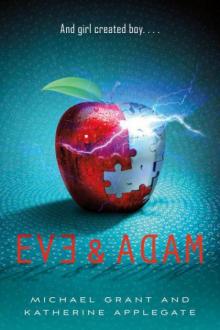 Eve & Adam
Eve & Adam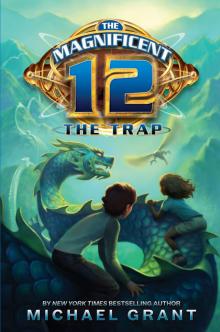 The Trap
The Trap Light
Light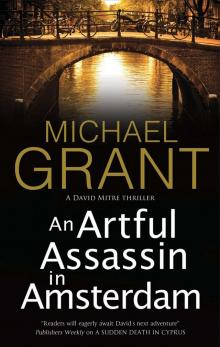 An Artful Assassin in Amsterdam
An Artful Assassin in Amsterdam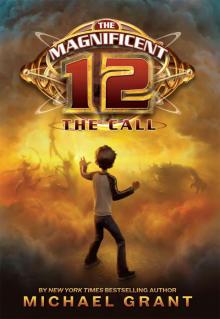 The Call
The Call Hero
Hero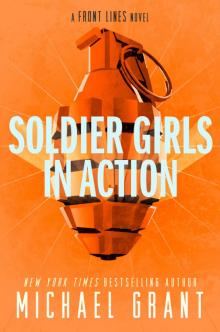 Soldier Girls in Action
Soldier Girls in Action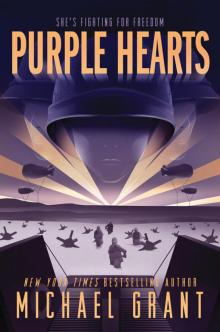 Purple Hearts
Purple Hearts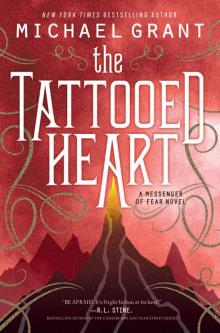 The Tattooed Heart
The Tattooed Heart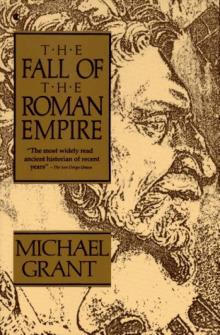 The Fall of the Roman Empire
The Fall of the Roman Empire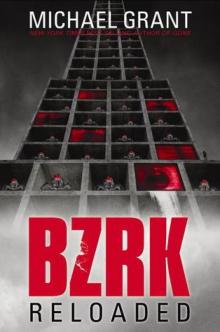 BZRK Reloaded
BZRK Reloaded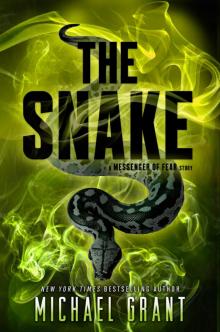 Messenger of Fear Novella #1
Messenger of Fear Novella #1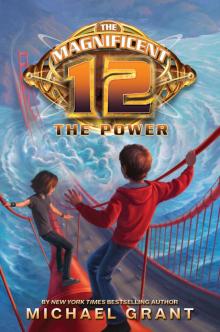 The Magnificent 12
The Magnificent 12 Fear: A Gone Novel
Fear: A Gone Novel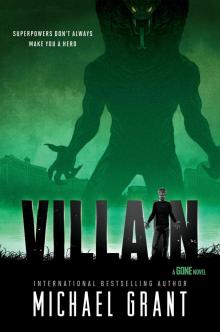 Villain
Villain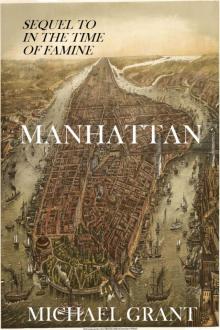 Manhattan
Manhattan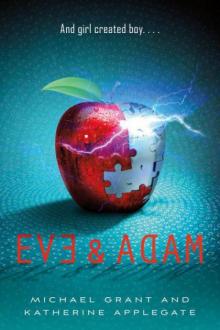 Eve and Adam
Eve and Adam Plague: A Gone Novel
Plague: A Gone Novel Fergie Rises
Fergie Rises In the Time of Famine
In the Time of Famine Hunger_A Gone Novel
Hunger_A Gone Novel Lies g-3
Lies g-3